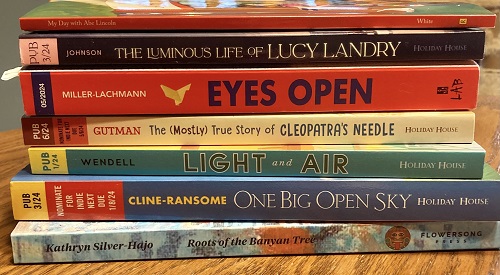Walter Scott Prize – What is Literary Historical Fiction?
Richard Lee
 James Wood (in wise-facetious mood) makes excellent and interesting observations about Hilary Mantel’s Cromwell novels for The New Yorker this week, but also chooses to describe historical novels as ‘a somewhat gimcrack genre not exactly jammed with greatness’. He does so, of course, to irritate people like us, and it is not the first time he has expressed this view, nor the first time I have taken him to task about it.
James Wood (in wise-facetious mood) makes excellent and interesting observations about Hilary Mantel’s Cromwell novels for The New Yorker this week, but also chooses to describe historical novels as ‘a somewhat gimcrack genre not exactly jammed with greatness’. He does so, of course, to irritate people like us, and it is not the first time he has expressed this view, nor the first time I have taken him to task about it.
The first self-evident point to make is that historical novels are not a genre. ‘Crime’ is a genre, ‘romance’ is a genre, ‘literary’ is a genre. Historical novels can be any of these. The defining characteristic of historical fiction is merely that it is set in the past.
[right]
it’s not the past-ness that matters here, it’s the greatness
[/right]
The second is – well, it rather depends what you mean by greatness. Greatness in art is what Keats termed the truth of Imagination. It is the gift to be able to think and feel as another: Keats famously wrote in the same letter ‘if a sparrow come before my window, I take part in its existence and pick about the gravel.’ Mantel has talked rather less comfortably of ‘peeling your sensibility‘, but with a similar aim. Keats wrote that Shakespeare had this gift ‘enormously’. But if the truth of Imagination is the ability to inhabit the existence of that which is alien to you, then past, present or fantasy are equally opened up. Keats might pick about as a sparrow, or dream an unheard melody on a Grecian Urn; Shakespeare can equally conjure a doom-wracked Scottish King, or a mind-forged spirit, light as air; and Mantel can inhabit a great Cardinal dressed in words, and make us feel the brush of dead fingertips on an unbelieving shoulder.
In other words it’s not the past-ness that matters here, it’s the greatness.
[right]
What Wood is actually saying is that he believes historical novels are more difficult to achieve
[/right]
What Wood is actually saying is that he believes historical novels are more difficult to achieve than contemporary novels. It requires a greater artist to be as animate, as zeit-geisty, and as modern in historical fiction. I do not entirely disagree with that. But I strongly disagree that Mantel is unique in the field or that these are the only qualities praiseworthy in literature. I also suspect that James Wood has not read as many historical novels as he pretends.
The Walter Scott Prize has been established almost in opposition to the views of Wood and his like. Won by Mantel in its inaugural year, then by Andrea Levy, the prize has also boasted strong shortlists – a guide, if you like, to literary historical novels.
This year the Historical Novel Society wants to show its support for the Walter Scott Prize and for the literary genre of historical fiction in general, by featuring each of the shortlisted novels.
For your diaries then:
Saturday 19th May – On Canaan’s Side. The Historical Novel as Paean of Loss.
Wednesday 23rd May – Pure. The Historical Novel as ‘time outside time’.
Saturday 26th May – Stranger’s Child. The anti-historic novel.
Wednesday 30th May – Half Blood Blues. Fiddling While Rome burns.
Saturday 2nd June – Quality of Mercy. The ‘big’ subjects.
Wednesday 6th June – The Sisters Brothers. When genre gets literary.
We will be looking at what critics have said about each book. We will be thinking about each author’s voice, and on what terms the narratives work. We will ask (yes James!) what is zeit-geisty and fashionably ‘now’ about the books, but without necessarily concluding that these are the sole deciders of literary merit. We will think about which genre or style of historical fiction each book inhabits.
And we will also – can’t help it – consider which novel we think should win on 16th June.
What is literary historical fiction? Read the series. Find out what we think.






